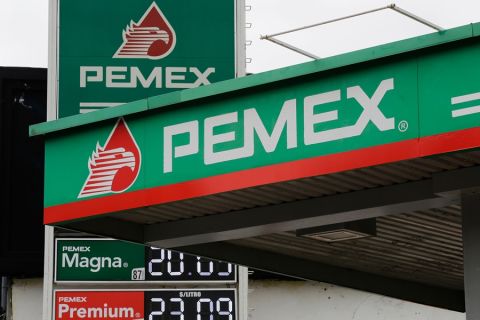Anti-frac activism often comes across as alarmist and shrill. And much of it betrays an uncertain grasp of geology, chemistry, and industrial processes. What most often irks me is the overzealous attention directed at oil and gas, and very little discussion of other industrial chemical production. The New York Times published another drilling-related article this week, adding to its continuing coverage of the gas shale boom. While it's gratifying to see our industry detailed in the pages of my hometown paper, I'm dismayed at the bias in these articles. In "The Dark Side of a Natural Gas Boom," authors Jad Mouawad and Clifford Krauss delve into groundwater contamination from shale gas drilling and hydraulic fracturing. Mouawad is a staff reporter who has covered the energy industry for the NYT since 2004, and hails from Beirut and Paris. Krauss is a national business correspondent for the NYT, now based in Houston, and a former Edward R. Murrow Press Fellow (1987-88). I hoped for rational, thoughtful coverage of the topic and balanced reporting. Alas. The piece opens with a schmaltzy vignette of a landowner in Dimock, Penn., rightfully distraught over methane in her household water well (one of 13 contaminated), ostensibly from a nearby gas well drilled by Cabot Oil and Gas. "It's been 'drill, baby, drill' out here," she laments. We learn at the end of the article that she sold drilling rights on her property for $180 (seems pretty darn low), but they didn't drill on her land. Three gas wells were drilled on neighboring properties, however. If folks don't want drilling in their area, then they shouldn't sign over mineral rights for drilling. Is this buyers' remorse? Her household suffers the damage, but does not benefit from any royalties? If she had received a more substantial bonus and decent royalties, would she have a different opinion about the drilling activity? Cabot now supplies them with bottled drinking water, but says, "none of the issues in Dimock have anything to do with hydraulic fracturing." (The authors leave the readers to wonder how the 13 local wells were contaminated by methane and why the state fined Cabot $176,650.) The authors go on to quote oil company leaders Aubrey McClendon, CEO, Chesapeake Energy Corp. ("...we have to be in sync with people's concerns about water") and Rodney Waller, Senior VP, Range Resources Corp. ("It's not going to stop us, but we do have to solve the problem in a prudent manner") Neither of which paint the industry in a complimentary light. Can't we do better than this?
Recommended Reading
EU Expected to Sue Germany Over Gas Tariff, Sources Say
2024-04-17 - The German tariff is a legacy of the European energy crisis that peaked in 2022 after Moscow slashed gas flows to Europe and an undersea explosion shut down the Nord Stream pipeline.
Pemex to Remain Fiscally Challenged for Mexico’s Next President
2024-04-16 - S&P Global Ratings said Pemex will remain a fiscal challenge for the country’s next president, adding that continued cautious macroeconomic management was key in its ratings on both Mexico and Pemex.
Yellen Expects Further Sanctions on Iran, Oil Exports Possible Target
2024-04-16 - U.S. Treasury Secretary Janet Yellen intends to hit Iran with new sanctions in coming days due to its unprecedented attack on Israel.

